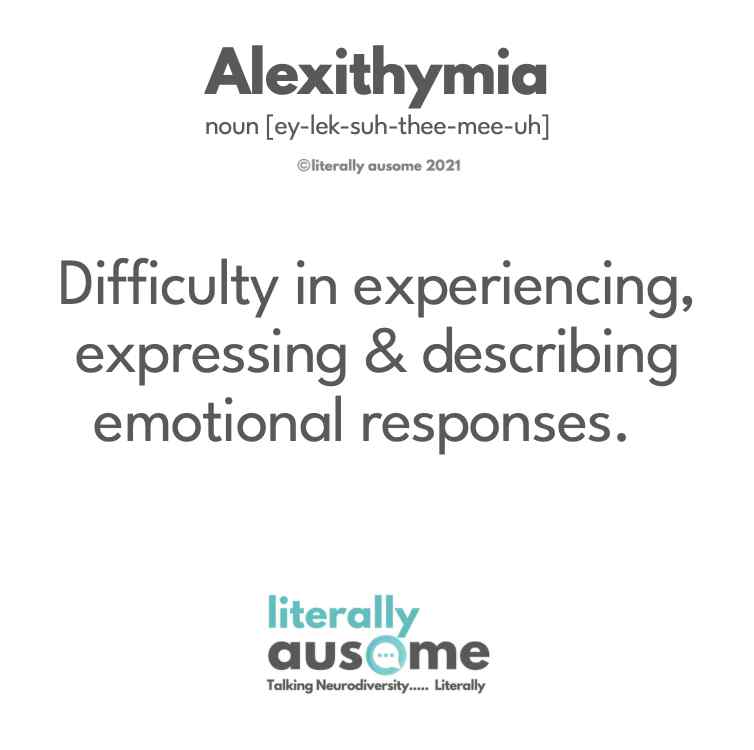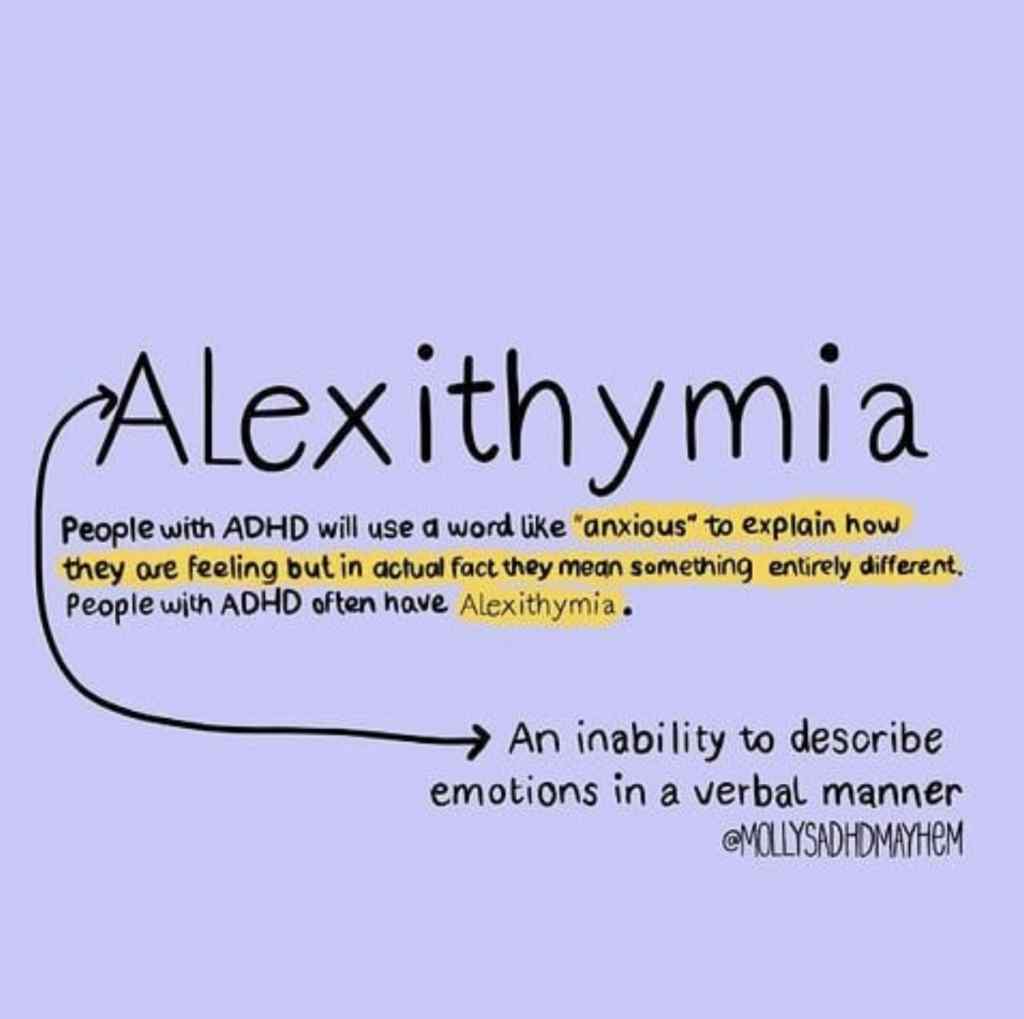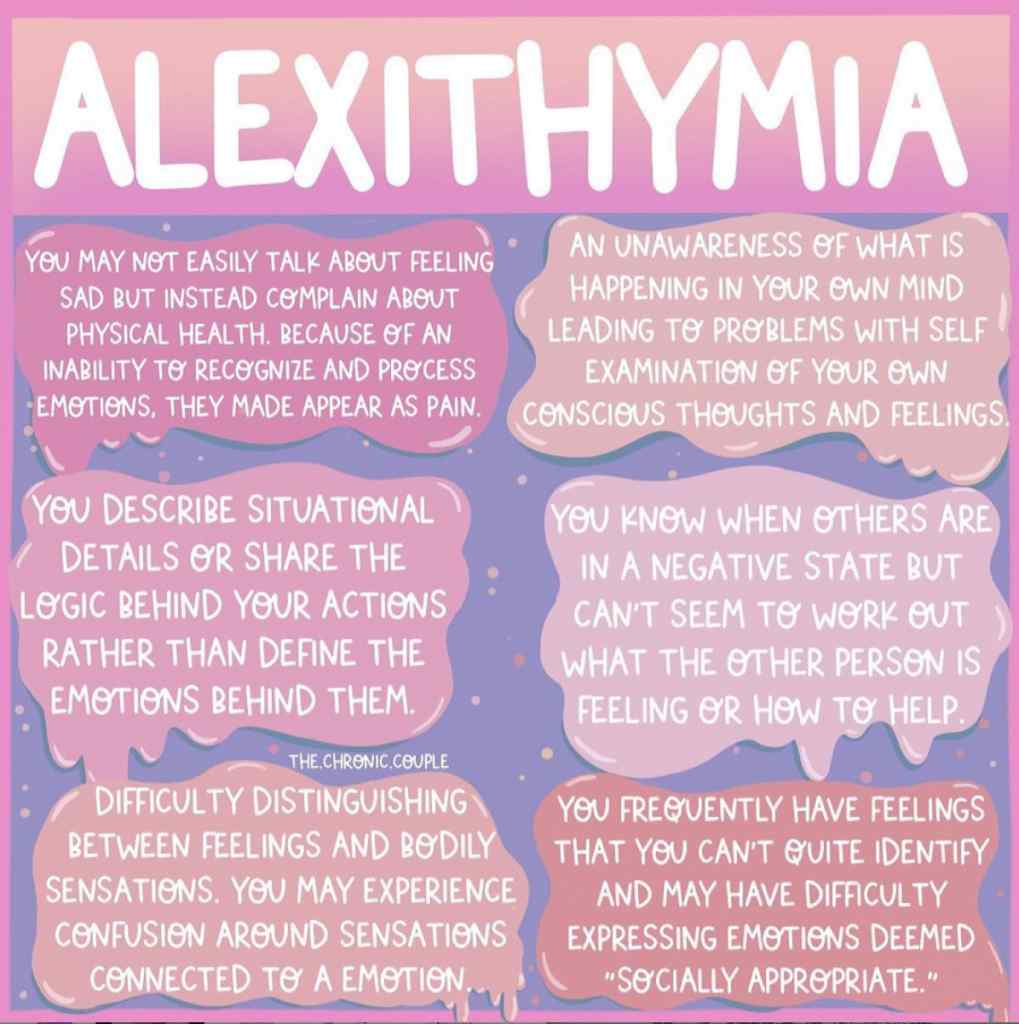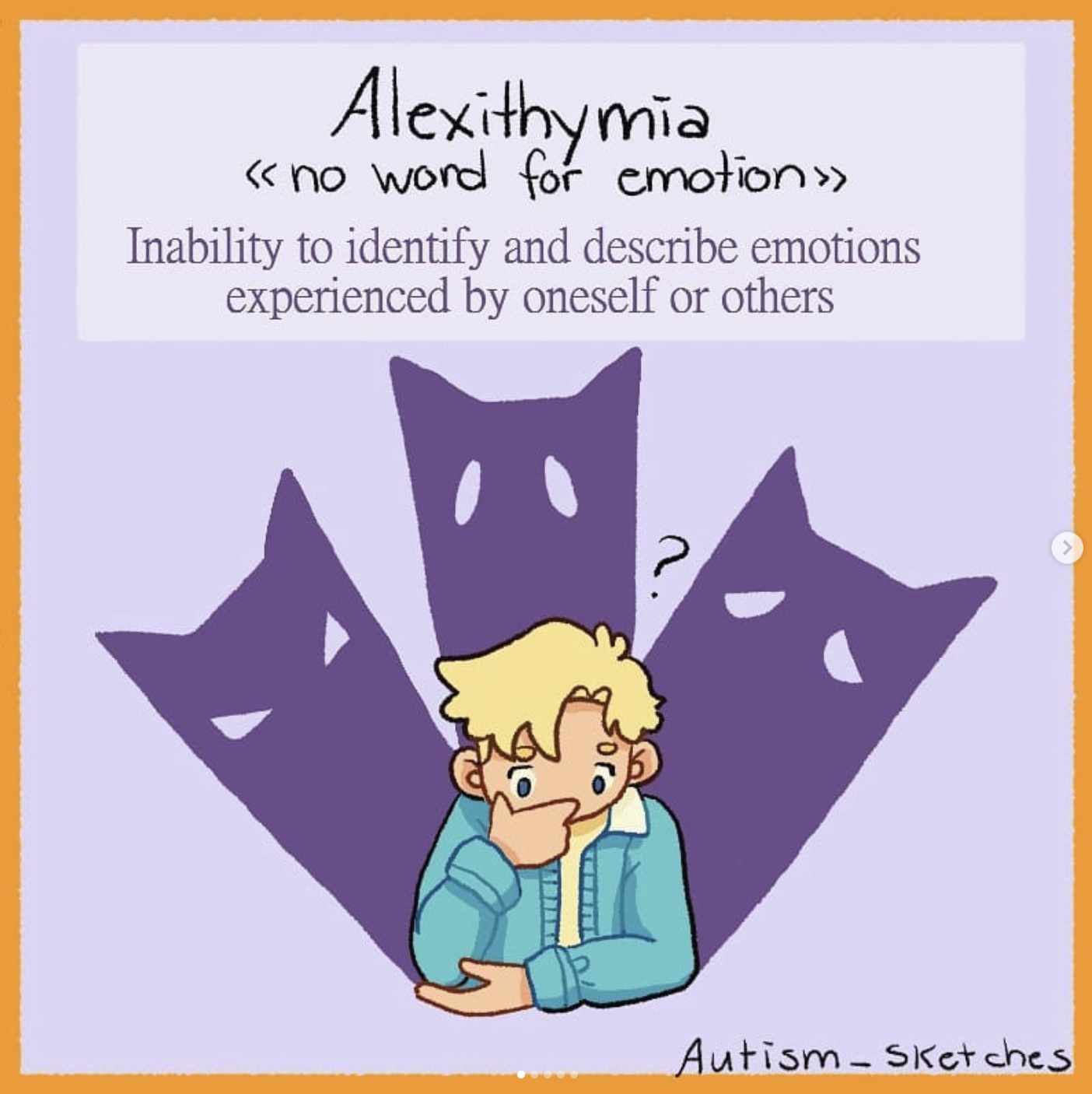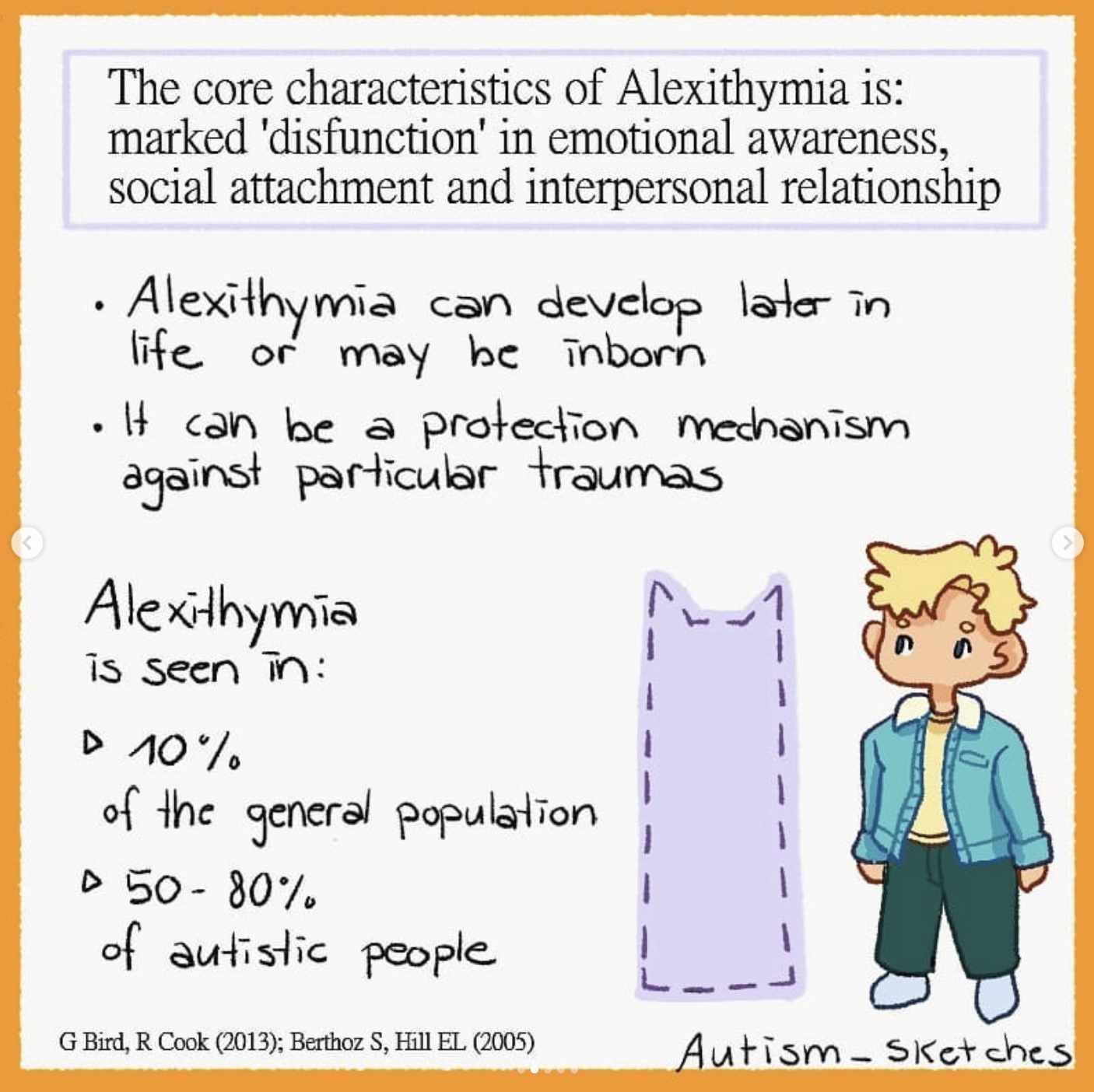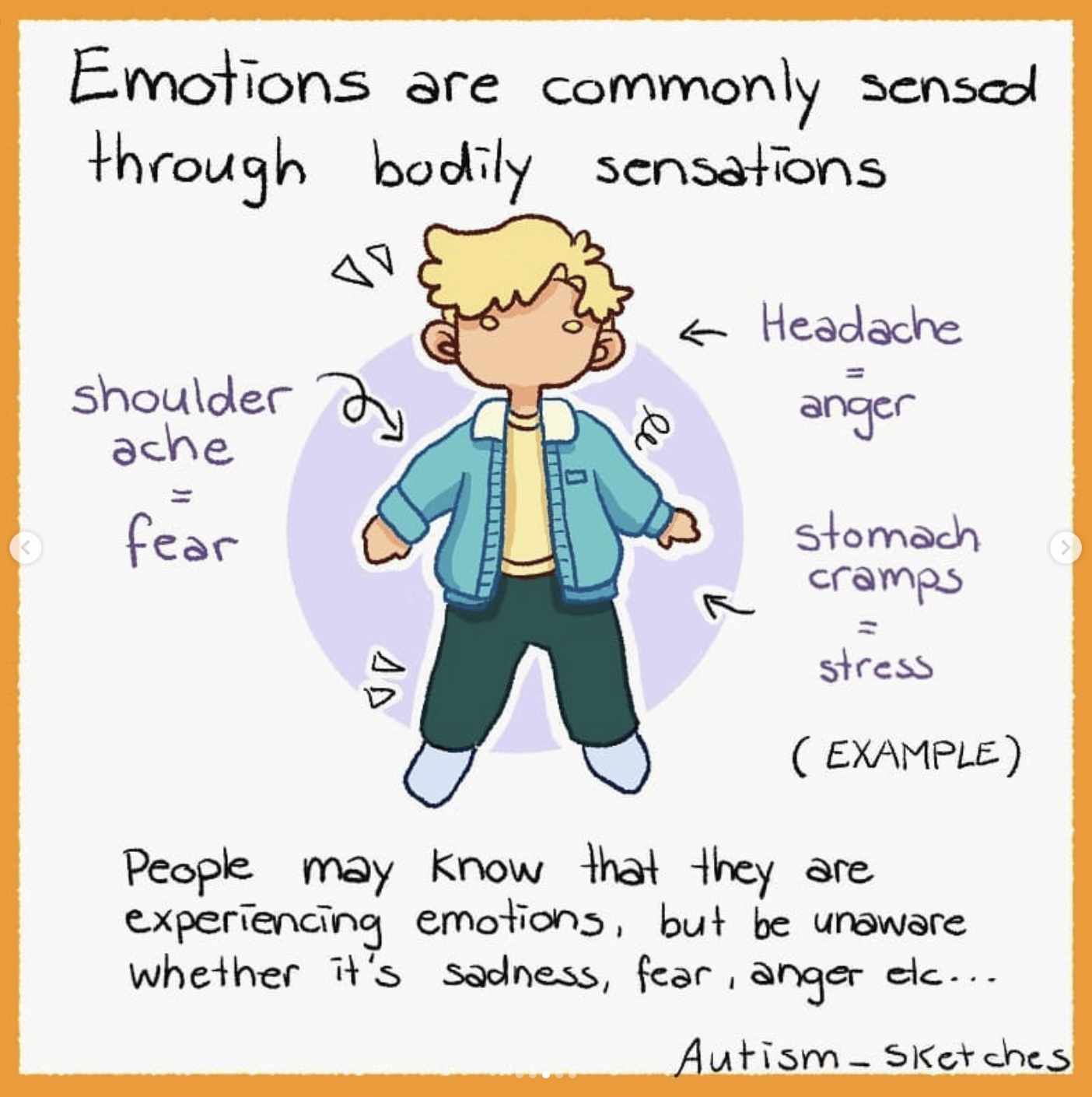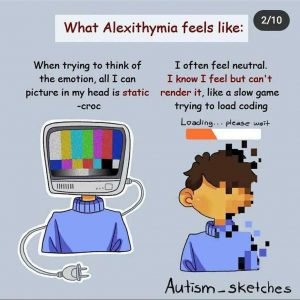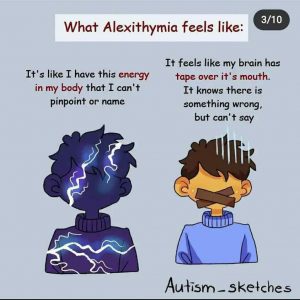What is Alexithymia?
Alexithymia is characterised by difficulties in identifying, describing and processing one’s own feelings. This is often marked by a lack of understanding of the feelings of others and difficulty distinguishing between feelings and the bodily sensations of emotional arousal.
Alexithymia has been described as 'emotional blindness', or someone who has difficulties both sensing and describing their own emotions. Alexithymia is common in Neurodiverse people and not limited to Autism.
People who have alexithymia may describe themselves as having difficulties with expressing emotions that are deemed socially appropriate, such as happiness on a joyous occasion and others may also have trouble identifying their own emotions.
Those with alexithymia may experience:
Difficulty identifying different types of feelings
Limited understanding of what causes feelings
Difficulty expressing feelings
Difficulty recognising facial cues in others
Limited or rigid imagination
Constricted style of thinking
Hypersensitive to physical sensations
Detached or tentative connection to others


